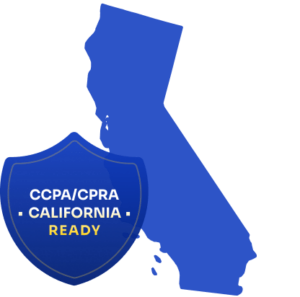CCPA/CPRA Compliance for Shopify Stores: Become compliant with the California Consumer Privacy Act
Pandectes GDPR Compliance helps Shopify stores meet CCPA and CPRA requirements by scanning for cookies, generating reports, and ensuring compliance.
















What is CCPA & CPRA?
California Consumer Privacy Act (CCPA): Effective January 1, 2020, the CCPA sets rules for how businesses handle the personal information of California residents. Key rights granted include:
- Transparency: Knowing what personal information is collected.
- Deletion: Requesting deletion of personal information.
- Opt-Out: Opting out of the sale of personal information.
California Privacy Rights Act (CPRA): The CPRA, an amendment to the CCPA, took effect on January 1, 2023. It introduces:
- Correction: The right to correct inaccurate personal information.
- Limitation: Restrictions on the use of sensitive personal information.
- Expanded Definition: Broader definition of personal information.
- Increased Fines: Higher penalties for non-compliance.
- California Privacy Protection Agency: New agency for enforcement.

Who does the CCPA/CPRA apply to?
The CCPA/CPRA applies to any organization that processes or stores personal data of California residents, regardless of where the organization is based.

What happens if I don’t comply with the CCPA & CPRA?
Non-compliance with CCPA and CPRA can result in:
- Fines: Up to $2,500 per violation (CCPA) and up to $7,500 for intentional violations (CPRA).
- Penalties: Fines for failure to notify data collection, provide opt-out methods, delete personal information upon request, or disclose data breaches.
- Additional Sanctions: Orders to halt personal data processing or legal actions from affected individuals.
When will the CCPA & CPRA go into effect?
CCPA: Effective January 1, 2020.
CPRA: Effective January 1, 2023.
Complying with the CCPA & CPRA
Navigating the evolving landscape of data privacy laws can be complex. To stay compliant:
- Stay Informed: Keep up with new legislation and consult legal counsel.
- Use a CMP: A Consent Management Platform (CMP) like Pandectes GDPR Compliance can simplify compliance. It offers:
- Customizable consent management
- Automated data subject access requests
- Tools for cookie and vendor management
Pandectes GDPR Compliance is specifically designed for Shopify stores to help you maintain compliance amidst changing data privacy regulations.



